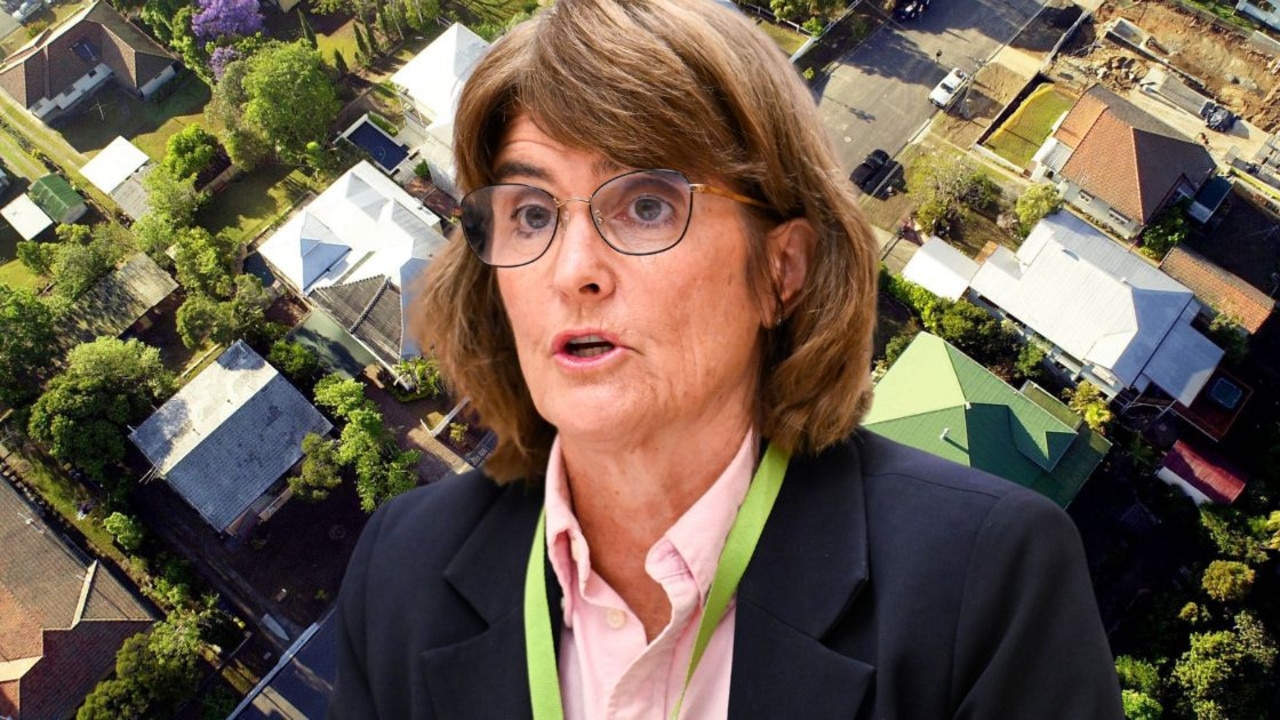Happy Australia Day: Is there such a thing as an Aussie spirit?
WHO are we and what are we like? Grantlee Kieza explores the character of we Australians
CM Insight
Don't miss out on the headlines from CM Insight. Followed categories will be added to My News.
WHO are we and what are we like? Is there such a thing as the Aussie spirit and on this national day – as we commemorate the landing of shiploads of convicts to form a British penal settlement 231 years ago – does it still exist?
More than a century ago popular writers such as Henry Lawson, Banjo Paterson and George Essex Evans defined the Australian character through the lens of a harsh land. But the Australian character still lives large, not in the pages of poetry or fiction, but in our towns and cities, in our suburbs and our streets.
Evans wrote Women of the West, verses that lauded the brave and determined wives and mothers who gave up the comforts of the vine-wreathed cottage or the mansion on the hill to tackle farming in the wilderness with their families.
Lawson’s short story The Drover’s Wife glorified the Aussie spirit of a stoic, gaunt, sun-browned bush woman caring for her four ragged, dried-up-looking children while battling a poisonous black snake that lurked under the cracks of her rough slab floor.

There are still women just like that all around Australia, women caring for their families in the face of enormous odds, staying on the land to battle drought, fire and flood or working in the big cities to support their kids, battling the daily commute, childhood illnesses and tough economic times.
Paterson wrote of the Aussie spirit in his great bush ballads, relating in one the fable of the young man from Snowy River, a stripling of a lad on a small and weedy beast who hurtled down the flintstones on Mt Kosciusko’s side chasing a pack of wild brumbies.
Australia is full of brave men and women just like that youngster, Australians who give of themselves every day to help others.

When I think of Australia Day I think of Queensland nurse Sister Elizabeth Kenny, who in World War I spent more time on dark ships in danger zones than just about any other woman in the world.
Kenny, when forming her revolutionary treatment for polio, was called a quack, a charlatan, and criminal, year after year by men who refused to believe that a woman from the bush could devise a treatment that succeeded where they had failed.
I think of another nurse, Ellen Savage, who in the wake of the hospital ship Centaur being torpedoed by a Japanese submarine off Queensland’s Moreton Island in 1943, clung to a life raft and, with bull sharks circling, gave comfort to the wounded and dying until help arrived.

I think of Ballarat’s long forgotten “Bull’’ Allen, an orphan who escaped a childhood of domestic violence and poverty who, in New Guinea during World War II, carried 12 wounded US soldiers to safety under heavy fire. He was awarded the Silver Star for valour, but never recovered from the emotional trauma.
January 26 has always been a controversial choice as Australia Day with indigenous groups calling it Invasion Day, and other critics wondering why we should not instead be celebrating our independence as a nation rather than commemorating the establishment of another colony for Britain.
But, perhaps Australia Day should just be a celebration of the characteristics that still make this nation a bastion of democracy, an example to the rest of the world.

We are obviously not perfect.
We are a nation of blow-ins but have a history of intolerance – even cruelty – against the people who were here first. At least, we have learned to say sorry.
Statistics show that half of us still have reservations about Muslims, and a third of us aren’t too sure about Jews, Asians or black Africans, but we are not as intolerant as we were in the 1850s when Chinese miners were scalped and murdered in riots in Victoria and NSW.
Our political landscape is a mess, but not so bad as it was during the dismissal of Gough Whitlam in 1975.
We live in one of the most beautiful countries in the world where the great outdoors, the beaches and the bush are free, and we should celebrate all that we have, from our unique landscape to our wondrous flora and fauna, animals and plants that are found here and nowhere else.
We produce some of the best and the brightest, and we should think about some of them today.

Aussie men like Howard Florey who helped to develop penicillin and saved hundreds of millions of lives.
Women like Caroline Chisholm, who after landing in Australia from England in 1838 gave of herself to find homes and jobs for 11,000 destitute people.
Men like Fred Hollows, a specialist in treating the eye disease trachoma, who travelled the Outback helping Aborigines keep their sight, and then took his work to Africa, giving of himself with amazing grace so that the blind could see long after he died from cancer.
Women like Betty Cuthbert, the Golden Girl of Australian athletics, who won four Olympic gold medals and who, for years, fought multiple sclerosis with a huge heart and a smile on her face.
Men like Bert Hinkler and Charles Kingsford Smith, who sacrificed their lives pursuing aviation records and paved the way for the rest of us to sit back, relax and watch a movie as we fly to Europe in relative comfort in a day.

Indigenous men like Vincent Lingiari and Eddie Mabo, who battled for Aboriginal land rights; Pastor Doug Nicholls and Faith Bandler, who also fought for a fairer go for the First People.
And John Howard, who had the guts to stare down the gun lobby, taking more than 700,000 weapons off the streets after the Port Arthur massacre.
Australian Professor Fiona Wood patented her spray-on skin technique, Dave Warren created the black-box flight recorder and Jack Grant, of Qantas, invented the inflatable aircraft escape slide.

In 1926, Dr Mark Lidwill made a heart pacemaker, and in 2006, Professor Ian Frazer discovered a vaccination for cervical cancer. John O’Sullivan and the CSIRO developed Wi-Fi technology.
We can also take much of the credit for Google maps, polymer banknotes, cochlear implants, the electric drill, ultrasound scanners, plastic spectacle lenses, permanent-crease clothing, the ute, the Victa lawnmower, the winged keel and the Hills Hoist.
Even the feature film – the 1906 epic The Story of the Kelly Gang, is acknowledged as the world’s first.
The Australian spirit also lives on among palliative nurses and doctors who give comfort to the dying day in, day out; paramedics who deal with all manner of harrowing trauma, and police officers and firemen who go to work every day not knowing if they’ll come home.

That Aussie spirit was displayed by one of last year’s Star of Courage recipients Tori Johnson, who during the armed siege at the Lindt Cafe in Sydney in 2014, calmly obeyed the gunman’s demands in an attempt to protect the other hostages. He paid with his life for his courage on behalf of others.
From humble beginnings as the dumping ground for Britain’s criminal refuse, Australia has become one of the wealthiest and smartest nations in the world.
We have been spared warfare on our shores but we remain tough and resolute, our hardiness spiced by a larrikin sense of humour.
Only a handful of countries can match our standard of living.

W e fight back from droughts and together we battle bushfires and help each other recover from floods.
From its foundation as a penal settlement, Australia has had an egalitarian ethos. Some of our most prominent early citizens, including the architect Francis Greenway and businesswoman Mary Reibey, arrived here as convicts in chains.
Since then, the Australian character has eschewed snobbery and pretence, giving everyone equal worth. We cut down tall poppies and prefer to promote on merit rather than family ties.
John Monash, who rose from being the poor son of a German-speaking Jewish shopkeeper to become supreme commander of Australia’s forces in Europe during the Great War, said “the democratic institutions’’ under which his troops were reared were key elements to their “glorious spirit of heroism’’.
There was also “the instinct of sport and adventure which is his national heritage, his pride in his young country, and the opportunity which came to him of creating a great national tradition’’.
“The Australian is accustomed to teamwork,’’ Monash wrote. “He learns it in the sporting field, in his industrial organisations, and in his political activities.’’
Australia is a land that abounds in nature’s gifts, of beauty rich and rare.
But, in good times and bad, there is nothing quite so valuable in this country as that teamwork in a crisis and the idea of a fair go for all. That’s the Australian spirit.


